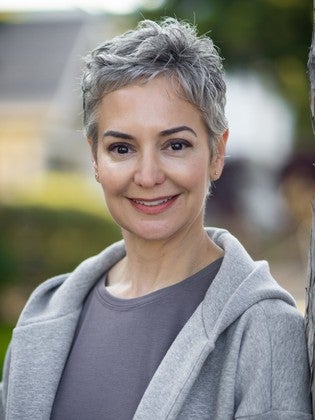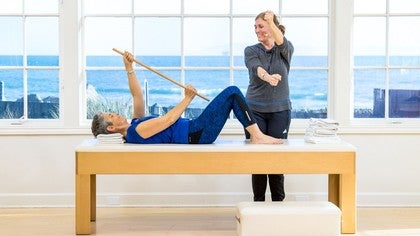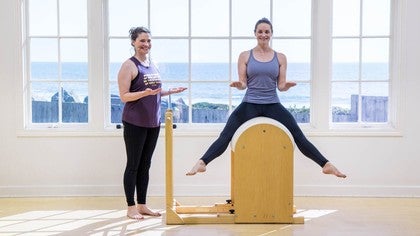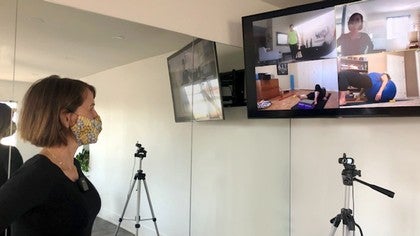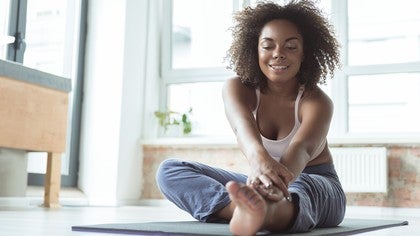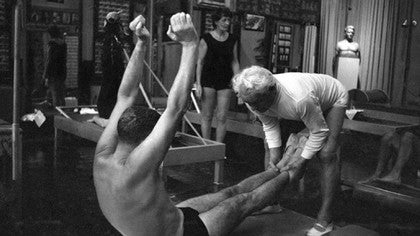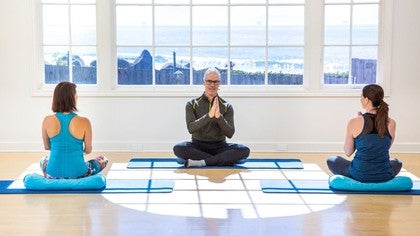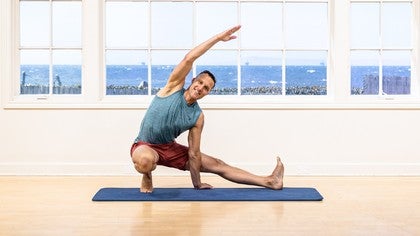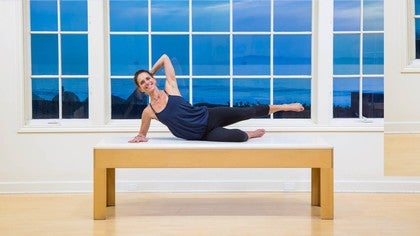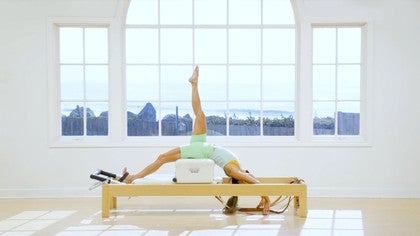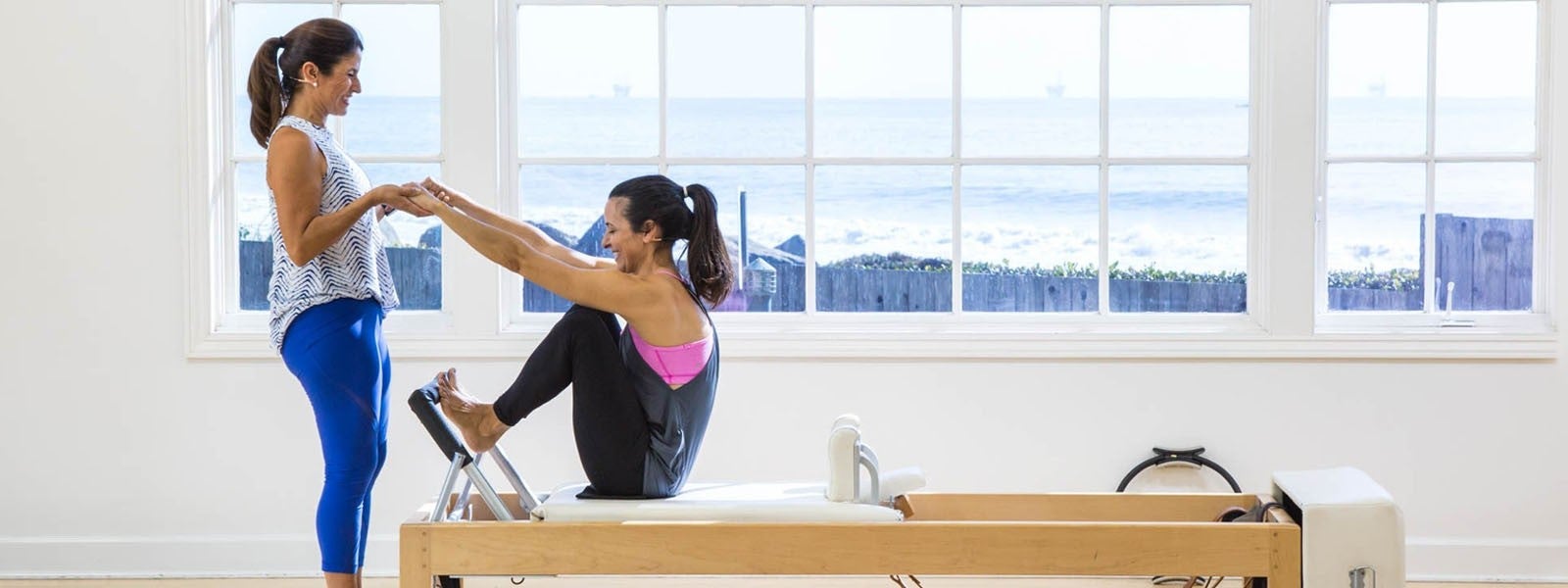
Returning to Pilates After Covid
We spoke with Carla Mullins, a Pilates instructor, co-director and co-owner of Body Organics in Brisbane, Australia, a company that provides continuing education for Pilates and movement instructors, for advice on easing the transition back into exercise after Covid.
Long Covid is defined as having symptoms of Covid that persist longer than two or three weeks, well past the point that the person tests positive for the virus. Some of the common symptoms of long Covid are anxiety, fatigue, cognitive changes, and sleep issues, says Mullins, who recently created a workshop on immunity for Pilates Anytime. In addition, there can be changes to the respiratory and cardiovascular systems.
Mullins notes that although Pilates students as a group tend to have good prior health and high socio-economic status (making them less likely to have contracted Covid), they are still at risk of infection. While long Covid and fatigue issues affect both genders, there is a higher prevalence in women, who make up the majority of Pilates students.
Patients are at higher risk of post–Covid-19 conditions if they experienced severe illness during their acute Covid-19, for example, if they were in intensive care, and if they have pre-existing comorbidities (such respiratory disease, obesity, diabetes, hypertension, and others). Being older and female, which again is the demographic of the typical Pilates student, is also a factor.
Tailoring the Session
Mullins suggests that instructors screen their clients upon their return to the studio to ensure that their workouts are appropriate and will not aggravate long Covid symptoms.
This screening can be either verbal or written. Instructors should explain the purpose of the screening so that the client feels comfortable disclosing changes in sleep, cognitive changes, fatigue, memory, breathing problems, etc.
It's helpful to know:
- What type of Covid did they have, if known? (Alpha, Delta, or Omicron?)
- Age of client
- What symptoms are they experiencing?
- How those symptoms are affecting their function (e.g., do they experience breathlessness after too much exertion)
"We are not doctors. It is not within the Pilates instructor's scope of practice to diagnose anyone," says Mullins. "Remember that you're collecting this information to provide the most appropriate Pilates session to your client. If necessary, you can suggest a referral to a physician or mental health provider," she adds.
What follows are some of the most common symptoms of long Covid and suggestions on how the Pilates instructor can mitigate them during private sessions or group classes.
Anxiety
A Pilates practice can be helpful in managing anxiety. Research has shown that mindful breathing, or breath patterning, is a useful tool in managing stress and overwhelm. This kind of breathing is a central feature of Pilates.
Mullins suggests that instructors help their clients to articulate their triggers and adjust the session accordingly. That could mean teaching fewer exercises to prevent overwhelm, scheduling sessions at a time when the studio is less busy, or limiting music or chatter during a session. Avoid discussing the news, politics, or Covid while in the studio. Stick to less controversial topics, such as what you're watching on Netflix or what's in season at the farmer's market.
"It's our job to make our clients feel safe, whatever that means for your client," says Mullins.
Fatigue
Fatigue is characterized by diminished energy and an increased need to rest, regardless of whether or not there has been a recent change in activity level. In order to avoid the "boom-bust cycle" that can exacerbate fatigue, Mullins offers the following suggestions:
- Explore energy conservation techniques with your clients. Think: driving or taking public transit to class instead of walking or cycling.
- Suggest arriving a few minutes early so they don't feel rushed and have time to prepare for the session. If possible, provide a space where they can sit and wait quietly.
- Practice pacing, or making sure that they don't do too much activity in a single day.
- Find activities that they can delegate or outsource to others in order to save energy for favorite activities.
- Schedule sessions for their most energetic time of day.
- Consider Zoom workouts, because they don't require a trip to and from the studio.
- Offer 30-minute sessions or classes instead of longer classes and sessions, or semi-private classes so that clients have a chance to rest during the session.
Brain Fog
"When people are stressed or anxious, routines are comforting and can aid memory," says Mullins. Just coming to the studio at a certain time, hearing familiar cues, and performing the Pilates repertoire can serve this function.
Clients who are dealing with cognitive deficits, or "brain fog," can benefit from some simple housekeeping type of changes in the studio. Aim to provide a clean, uncluttered environment. Consider incorporating checklists, signage, and reminders throughout the studio (e.g., "Magic Circles go here"). Make sure that your client is in the best possible spot in the room (e.g., up towards the front in a group class).
Other strategies that an instructor can use to accommodate a client with "brain fog" are:
- Keep instructions and verbal cues simple.
- Devise mnemonics or create little stories or songs to help clients remember their routines or exercises.
- Reward positive thinking and motivation. Set goals and utilize rewards. For example, if your client loves a particular exercise (like the yummy side body stretches on the trapeze table), use those as "dessert."
- Reinforce the importance of self-monitoring: staying ahead of burnout, taking adequate rest breaks, and getting adequate food, sleep, and hydration.
- Encourage the use of journaling to record progress and keep track of what he or she has been working on in their sessions.
"Helping clients return to healthy and sustainable habits is important," says Mullins. "Thinking about the question of, 'What is the smallest change that you can make that could make a difference?' It's really about finding ways to help ourselves and our clients regain control, when everything feels so overwhelming and difficult," she adds.
Have you found that returning to your Pilates routine post-Covid has helped with your mood, endurance, or sense of well-being? Let us know how in the space below.
Comments
You need to be a subscriber to post a comment.
Please Log In or Create an Account to start your free trial.
